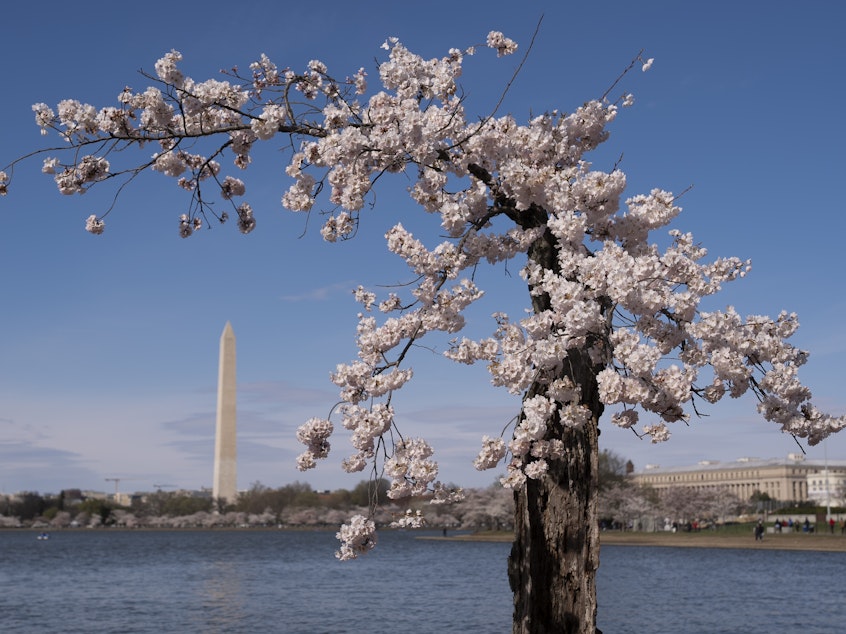Japan will give new cherry trees to replace those lost in D.C. construction

WASHINGTON — Japan is giving the United States 250 new cherry trees to help replace the hundreds that are being ripped out this summer as construction crews work to repair the crumbling seawall around the capital's Tidal Basin.
Japanese Prime Minister Fumio Kishida made the announcement as President Joe Biden welcomed him to the White House on Wednesday for an official visit and state dinner. Biden said the gift is meant to mark the 250th anniversary of the U.S. in 2026, adding, "Like our friendship, these trees are timeless, inspiring and thriving."
In 1912, first lady Helen Herron Taft and Viscountess Chinda, wife of the Japanese ambassador to the United States, planted two Yoshino cherry trees on the northern bank of the Potomac River's Tidal Basin. They were part of the 3,000 such trees Japan gave the U.S. in a symbol of the two countries' friendship.
The trees blossom in brilliant pinks and reds each spring and draw more than 1 million visitors to Washington. The aesthetics of the nation's capital aside, the latest gift reflects the geopolitical alliance between Biden and Kishida as they hold talks on the delicate security situation in the Pacific. The state dinner is designed to celebrate one of Biden's strongest allies.
Senior administration officials noted on a call with reporters that the two most important gifts that foreign countries have given the United States are arguably the Statue of Liberty — which came from the French and was dedicated in 1886 — and Japan's cherry trees in Washington.
Sponsored
The Tidal Basin is a 107-acre manmade reservoir bordering the Jefferson Memorial that is home to the highest concentration of cherry blossom trees. The senior officials said that when the Japanese learned that some of the trees would be felled due to the construction work, they immediately offered to provide saplings when the time was right.
"I am confident that the cherry blossomlike bond of the Japan-U.S. alliance will continue to grow even thicker and stronger, in the Indo-Pacific and in all corners of the world," Kishida said.
Biden, in his remarks, passed up a chance to mention Stumpy, the gnarled and hollow old cherry tree that stands on the Tidal Basin's south bank. Stumpy frequently becomes submerged in flood waters from the Potomac and has become a social media phenom. It is set to be removed as part of the $133 million, three-year improvement project to rebuild and reinforce the sea wall.
Biden said that he and his wife, Jill Biden, strolled the White House lawn on Tuesday evening with the prime minister and his wife, Yuko Kishida, to visit three cherry trees. One of them was planted by the first ladies last year and the other two are part of the new round of saplings.
"Every spring, cherry blossoms bloom across this city, thanks to a gift from Japan of 3,000 cherry trees over a century ago," Biden said. "People travel from all over our country and the world to see these magnificent blossoms." [Copyright 2024 NPR]



